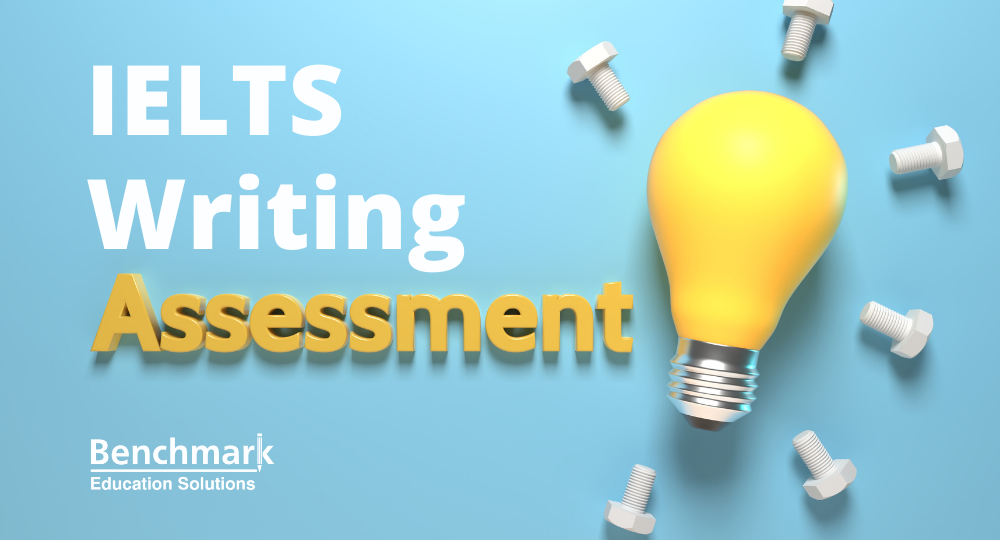

When you go into the IELTS writing exam, you will have to sit down and produce essays and letters that contain good English. But how does IELTS judge whether your English is good or not? Well, the examiners are carefully trained to use a set of assessment criteria that tell them how to assign you a grade.
Table of Contents
Read on if you want to know what these assignment criteria are. This is important because it can help you to better understand how your essays will be judged and thus what you should focus on before the test.
IELTS Marking: A Brief Overview
For the IELTS listening and reading tests, you are given 40 questions and you have to answer them. A computer programme will then judge whether you were right or wrong and assign you a grade according to a simple formula. It is pretty simple and there is not much to think about.
However, it is totally different for IELTS writing and speaking. Computers are not yet capable of this sort of thing. They cannot tell good English from bad and they certainly cannot do so with the accuracy needed for IELTS.
Thus, examiners are given a detailed set of guidelines and extensively trained in order to judge candidates’ abilities. These are broken down into four sections, which for the IELTS writing test are:
- Task Achievement/Response
- Coherence and Cohesion
- Lexical Resource
- Grammatical Range and Accuracy
Each of these are worth 25% of your total score and you will be given a grade of between 0 and 9 for each one. For example, if you scored 8/ 8/ 6/ 6, then your final score would be band 7.
That’s all well and good, but what do these terms actually mean? In the following sections, I will explain everything you need to know in simple terms.
Task Achievement/Response
Task Achievement and Task Response refer to how well you have answered the question. Task Achievement is the term used for task 2 and Task Response is used for task 1, but to be honest they are basically the same.
Essentially, in this area, the examiner is looking to assign a grade based upon your overall answer. Did you understand the question? Did you provide detail? Did you stay on topic? Did you give examples? These are all questions that the examiner will ask.
At its most basic, your grade for Task Achievement or Task Response will be given based upon whether or not your really understood the question. That is why you need to read the question carefully and respond without straying from the subject.
You also need to develop your ideas. If you are asked for the advantages and disadvantages, but you just list these with no explanation, you would not get a good score. Also, if your ideas are outrageous, naïve, or misguided, you might get a lower score because IELTS writing is, to some extent, a test of your basic thinking skills.
Coherence and Cohesion
These two words might be unfamiliar to you, but basically they refer to how your essay is linked together. We often talk about coherence as the way that paragraphs connect and cohesion as the way that sentences connect. From the big to the small, your IELTS writing tasks should be logical and easy to follow.
The most important and most basic thing is having a sensible structure. For task 1, that could be two or three paragraphs, and for task 2 it is usually four but sometimes five paragraphs. Each paragraph must serve a clear function and all the sentences within that paragraph must be focused around a singular idea.
However, Coherence and Cohesion goes a little beyond just the basic essay structure. You are also judged on how your clauses are linked, how you use cohesive devices, how your sentences flow together, and how you use pronouns.
This last one can be a real headache. Native English speakers often use pronouns to avoid repetition, but these can be confusing for learners. When you write, you will sometimes have to use words like “this” and “they” and “it.” If these are not clear and obvious, then you will not be able to get a good score for Coherence and Cohesion.
Lexical Resource
Lexical Resource fundamentally means “vocabulary” but do not think of it in such a simple way. Vocabulary is not just about knowing lots of words.
For IELTS writing, you would not be helped by learning vast lists of vocabulary. Instead, you need to learn how to use words accurately and idiomatically. You must avoid spelling mistakes and collocate your words naturally. Failure to do any of these things would result in a fairly low score.
A lot of IELTS candidates try to cram really obscure words into their essays, but this is honestly one of the worst things you can do. No IELTS examiner is foolish enough to fall for such a cheap trick. Instead, you need to be able to use a range of words in a reasonable and accurate way.
Getting a high score in this section can be a challenge, but it is not impossible, and you can still make small mistakes and score band 7, 8, or 9. Those mistakes must be minor and there should not be many of them. The bigger the error, the more it will cause a deduction in your score.
Grammatical Range and Accuracy
Another area that is surrounded in confusion and mystery is that of Grammatical Range and Accuracy. Essentially, this is how the IELTS writing examiners judge your grammar, and grammar entails many different things. It takes years to learn and even then most people still cannot use it perfectly.
The key to this section is in the name: You should not focus on range or accuracy; rather, you must focus on range and accuracy. That means your IELTS essay should feature different types of sentences, different clauses, and different prepositions. Importantly, these should all be used with a high degree of accuracy.
The problem with IELTS test is that grammar is incredibly difficult to learn and even making three mistakes could prevent you from scoring band 7 in this part of the test. However, you must persevere and master grammar. There is no other way.
Start with simple sentences, then build up to compound and compound ones, always paying attention to tenses and collocations of prepositions. Think about articles and other troublesome little words. Don’t write anything that you aren’t confident of being correct.
Conclusion
Your IELTS writing score will be given based upon your performance in these four marking criteria. Each of them is worth 25% of your total score and you will be given a grade ranging from 0 to 9 for each section. The latter two are definitely the hardest to master, so you should devote extra time to these. Some people try to balance their score by getting higher scores for Task Achievement and Coherence and Cohesion, but you should not give up on grammar. It is very important and having poor skills here can even cause your score for the first two criteria to drop because your writing will become confusing and misguide the reader.











